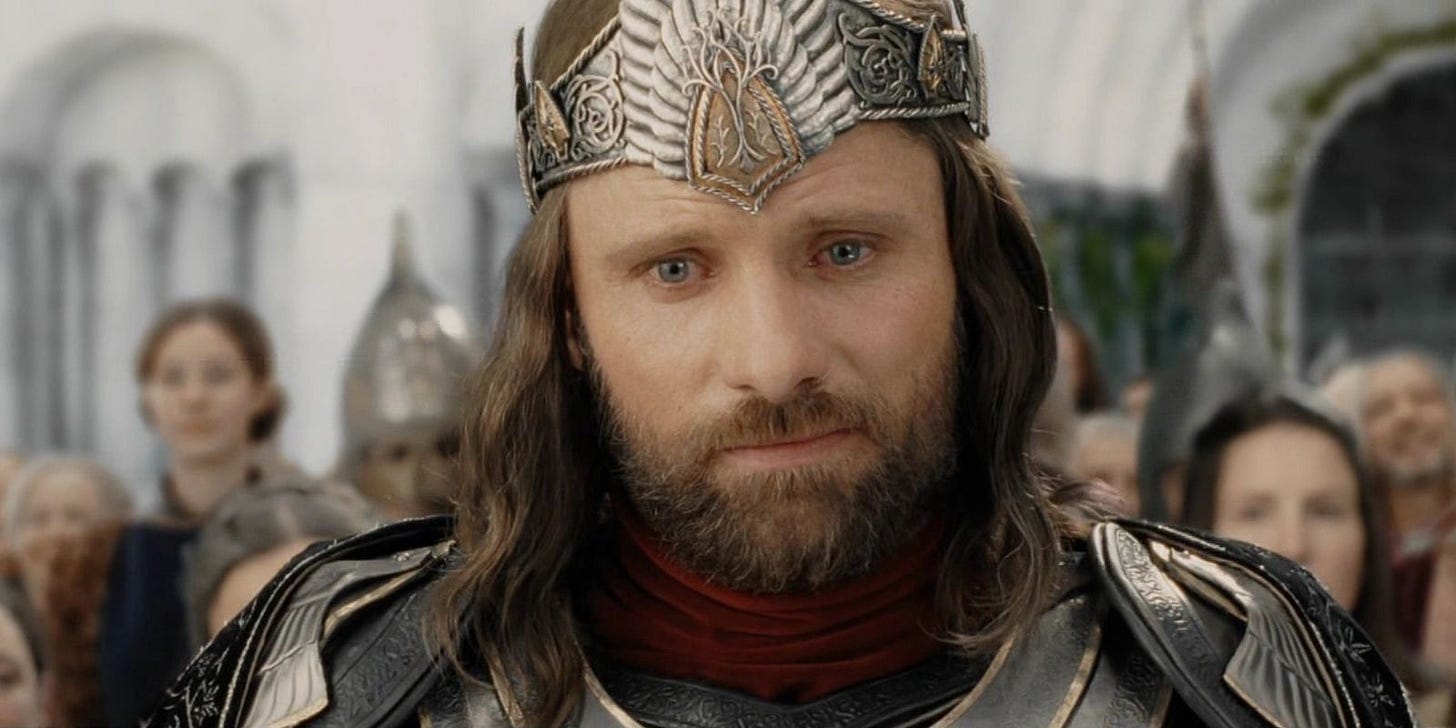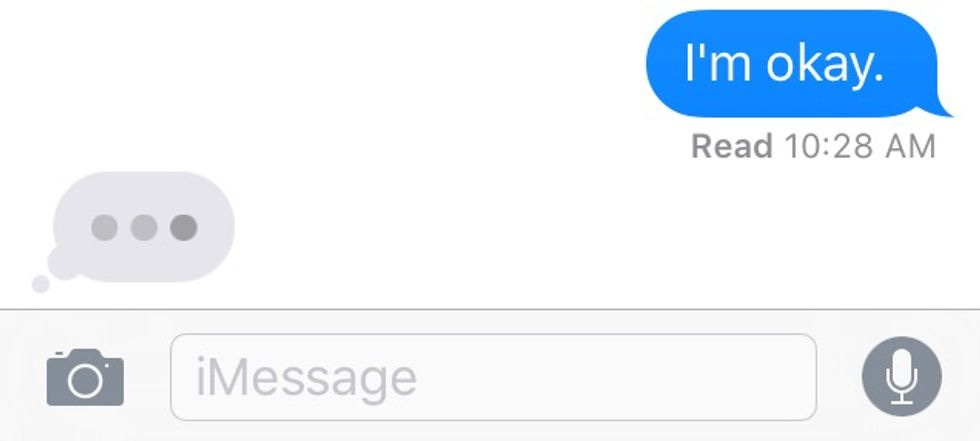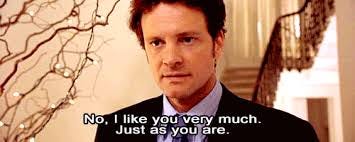Happy New Year! Well, for a couple of billion people anyway. Chinese New Year is at the end of January, and Persian New Year at the beginning of spring, so we have more transitions to look forward to!
Time for a little 2024 check-in, and a punctuation-invitation for 2025. Over the course of the past year, this newsletter grew nicely, and we’re now over 500 followers/subscribers, which is a lot for something as, shall we say, weird as punctuation…and considering my long posts that really ask for a special kind of person who’s willing to read thousands of words on a small screen – and that special person is you. Thank you!
Heartfelt thanks for being interested in dots and dashes, for allowing me to share my thoughts every month, for generously giving me your precious time and attention, and thank you for being a sensitive thoughtful curious and compassionate person. Because that’s what someone must be when they’re interested in tiny things like a comma or colon, the indispensable but invisible salt of language and writing that makes or breaks our communication, and hence our relationships.
In this dizzyingly huge fast scary world that harangues us to GO GO GO, you are a person who deliberately chooses to pause for thought; to consider alternatives; to attend to detail. You are basically Aragorn, King of Gondor, who just saved Middle Earth from Mordor-take-over, yet bowing to the smallest most over-looked (and thus under-estimated) inhabitants of his world: Hobbits. (Hands-up for team film-Aragorn with the ruggedly handsome sensitive Viggo! 🙋🏽♀️) Thank you for cherishing punctuation, the hobbits of the world of text.
In 2024, we’ve looked at the role of punctuation in politics (for example in the second amendment on the right to bear arms in the American constitution), how punctuation plays out in the twins of censorship and protest, both clamping down and liberating free speech. We’ve explored the history of punctuation (the origins of capitals, individual signs, Arab punctuation). We’ve dipped our toes into the brain’s involvement in punctuation (ADHD, and how to make children fall asleep fast). We now know emojis work best on dating apps, and we fearlessly plunged headlong into the relationship between textual swearing and punctuation (and f***ing fun it was!).
We have continually woven together the development of writing with its surfaces and technologies from clay tablets to the printing press and personal computer, and we’ve fed that into culture culture-ing as it does, inventing new things, chucking out what’s not needed anymore, and refining those practises which we want to carry into the future. Overall, perhaps, the drift of my work is both conservative (let’s hang onto our ancestors’ ideas a little longer, because they knew a thing or two about life), and – I don’t know – liberal? Laissez-faire? Theses posts seek to encourage you to worry less about language developments, and to not jump onto the bandwaggon of decline. It’s easy to be angry and despairing. Hope is a discipline.
When I tell people I’m a researcher of punctuation, they always ask me about rules, and don’t I think it’s horrible how people can’t punctuate nowadays [insert boomer harumphing about the internet and mobile phones and and and]. Here’s a confession: I’m not a terribly good punctuator myself. If “good“ means correct. Which, to me, it doesn’t. Below is what Mind the Gap considers good, and it’s an invitation to you to free yourself of the shackles of criticism, and, like Nike, to Just Do it. ✔️
¶
What we do do in this newsletter: examining the social history of punctuation, that is, how the organisation of text is intimately intertwined with our needs, desires, lifestyles, communication means.
What we do not do: rules. Regulations. Judging others based on their ability to remember an arbitrary rule someone somewhere at some point instituted. While it’s important and right to touch on “rules“ here and there, this is not the point of our investigations. There is nothing in language and writing that absolutely forces us to punctuate any which way. IFIWRITELIKETHISorlikethat youll still undrstnd what i mean¡
In the nineteenth century, the British used semicolons like we’d use commas today when enumerating items on a list. “We can use quotation marks“ for direct speech, or an initial dash – on every line, or no punctuation at all like in Cormic McCarthy’s novels, and the reader would still get it. George Bernard Shaw loathed apostrophes, calling them ‘uncouth bacilli’, and while my heart would never bring itself to subscribe to this venom, it is true that they only make reading faster, but we dont need need them.
Take the (in)famous Oxford comma: when you add entities to a list, the last one usually gets an ‘and’, often without comma, sometimes with. I like including the comma, because it looks unified to me, helps the eye and brain, and creates a little dramatic pause. Most of the time, it’s not a necessity, and, in fact, it’s perfectly normal that punctuation falls away over the course of centuries as happened to hyphens connecting two words for ease of reading such as pot-belly which the Shorter Oxford English Dictionary fused into potbelly a few years ago. To the great chagrin of us punctuation-lovers (punctuationlovers?), but, you know, it’s natural.
Do not be fooled by the Lynn Trusses of the world who make a living out of judging others, pointing fingers at what they perceive as mistakes which, considering that punctuation and all of writing is purely convention, and thus subject to change, is just breathtakingly arrogant and short-sighted. If we now collectively chose to abandon, say, capital letters at the beginning of sentences, raising the next generation without them, it would not spell textual apocalypse. we’d still be able to communicate perfectly fine, because we have terminal punctuation marks like the period or question mark to signal the end of an utterance. it’s just swifter for the eye to capture a sentence beginning, making text-processing faster and less of a strain. Other languages function differently, such as Persian which puts the “capital“ version of the letter at the end of words – sometimes anyway.
Actually, the first version of the sentence I just wrote was this: ‘at the end of words. Sometimes anyway!’ Then I went back, and replaced the period with a dash in order to create more of a surprise effect, subsuming the “ta da!“ quality of the exclamation mark into the dash, and adding a period at the end so as to subdue the tone a bit. Why? I don’t want to come across as shouty. And I preferred the visual continuation of lower case letters, increasing the flow and connection between the last three words. That’s a hell of a lot of responsibility placed on the shoulders of three punctuation marks! There’s actually plenty of leeway in punctuation if we chose to enjoy that spaciousness. Don’t let those grammar-sticklers take that away from you!
Rules, according to linguistics professor David Crystal, are a ‘set of practises with varying rigour’. They are the outer precincts of what’s possible which, more often than not, good writers like you and I push further, and then a little bit further still. And for good reason: punctuation is a subtle art fed by experience, emotion, purpose, and writing technology. You’ve got to be a consummate reader to be an effective punctuator. Am I writing within a formal or informal occasion? Is my tone chatty and conversational, kind, cheeky, rude, neutral, professional, serious, aggressive, firm, flirty? Am I writing an email, a text message, a Facebook status, or (three cheers to you if so) a letter on paper? We humans pick up on the minutest of nuances. If you misjudge the power of a period, you’ve only got yourself to blame, friend.
In the informal environment of text messages, the period becomes voluntary. By sending a message off into its little bubble, you signal that it’s over, it’s one chunk, either a full sentence, or a clause or an otherwise connected entity. No need for a terminal sign anymore. And that’s precisely what is happening in shorter functional text messages: we don’t bother going to the length of typing out a little dot. What if someone does it, though? Imagine you tell your spouse you’re late for dinner and they go “Okay.“ – I’d call immediately to ask what’s the matter!
Plenty of studies have found people reading into the little smudge of pixels, assuming the sender is suppressing anger if they dot a short message. One . and you can make someone go into a tail-spin worrying over a supposedly passive-aggressive tone. So, punctuation presence or absence depends on the technology of communication, its parameters, our relationship to the receiver, and so many sophisticated elements belying positivist assumptions that life is becoming easier and clearer and all. We’re just the complex messy sensitive human beings we’ve always been. And that is A Good Thing.
¶
Perhaps, we’d be wiser to just…do it. Create. Write. Punctuate. Put effectiveness at the centre of our motivation rather than a notion of correctness that is misguided anyway. The Renaissance knew this with its declared aim for speaking and writing: persuasion. Persuasive words meant knowing and adapting yourself to the listener, the occasion, the purpose, the medium. This is far far more difficult than simply writing “correctly“ according to some norm set by the self-declared defenders (also known as gatekeepers) like the Chicago Manual of Style.
My punctuation, for instance, is elocutionary before it is grammatical. That means, I put commas and colons and all the rest of that merry bunch where I’d like you to rest and breathe (if only with the voice in your head) where I myself would pause for emphasis if I’d read this out to you, or was chatting to you face-to-face. Elocutionary punctuation conjures up the illusion of a conversation, because I’d like you to imagine we’re sitting in a pub together, talking. This newsletter is such a pub in digital form, so my punctuation follows the voice in my head, and gently orchestrates your voice, hopefully bridging the gap of computer-mediated communication a little.
My native language is German whose punctuation is, sadly, 100% grammatical: you have to place commas between clauses, and if you don’t, you’ll be downgraded and declared dumb. Zero creativity or personality possible. I know this German text-socialisation colours my punctuation erring on the fuller side, but mostly, I dot and dash according to breath. And I’d like you to do the same. English allows for that so you can pepper your sentences with punctuation or you can leave the comma out before ‘so’ and ‘or’ and ‘and’ and the gerund creating one uninterrupted line of words – it’s all fine and dandy.
So. 2025 is your punctuation year, and I, one of the world’s foremost punctuation experts (okay, there aren’t many, so it’s an easy position to acquire) – I hereby give you permission to punctuate any which way you like if you believe it fits the bill of what you want to achieve. Don’t worry, be expressive.
¶
Punctuation is a unique channel into watching humans relate to one another through text in all its glory from letter to underline, from italic to semicolon. It’s a way of seeing beyond surface, asking questions, keeping ourselves open to surprise. To changing our mind. Mostly that. 🧠➡️⬅️
If you like these whimsical deep-dives into the world of punctuation, share your favourite post with that one friend who likes quirky quite interesting tidbits of history and culture. And now, I hope you’ll be a part of this journey in the new year.







